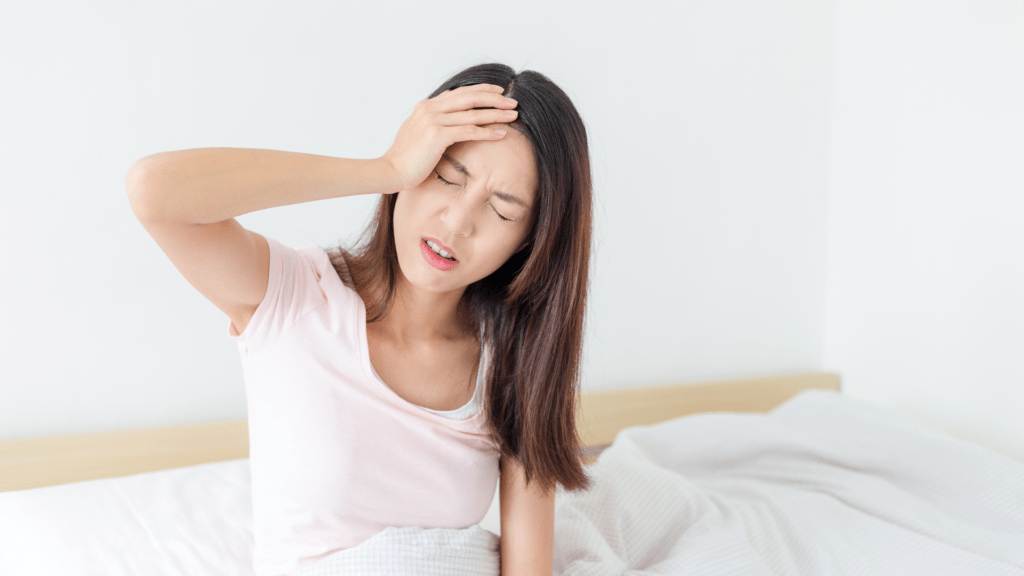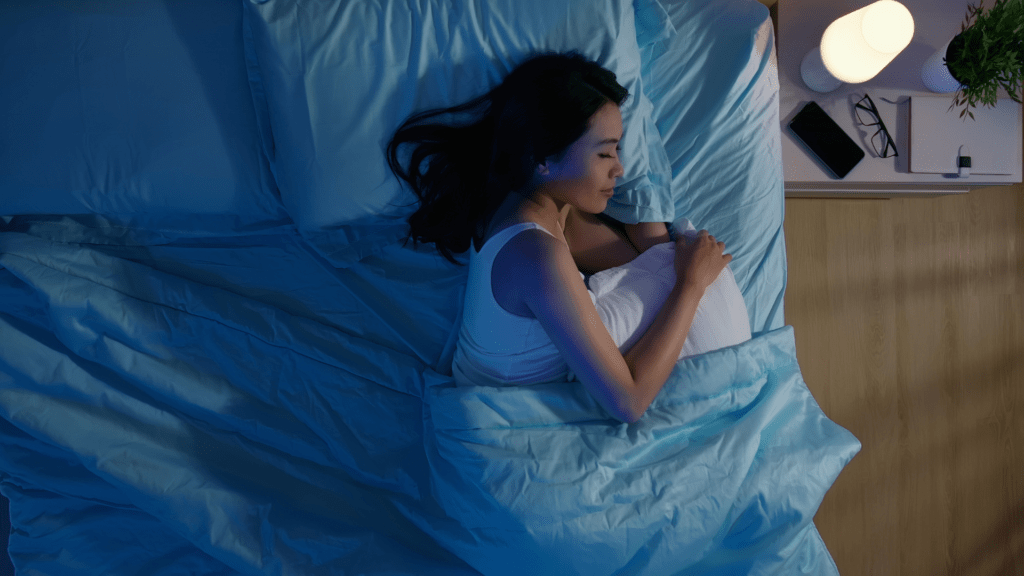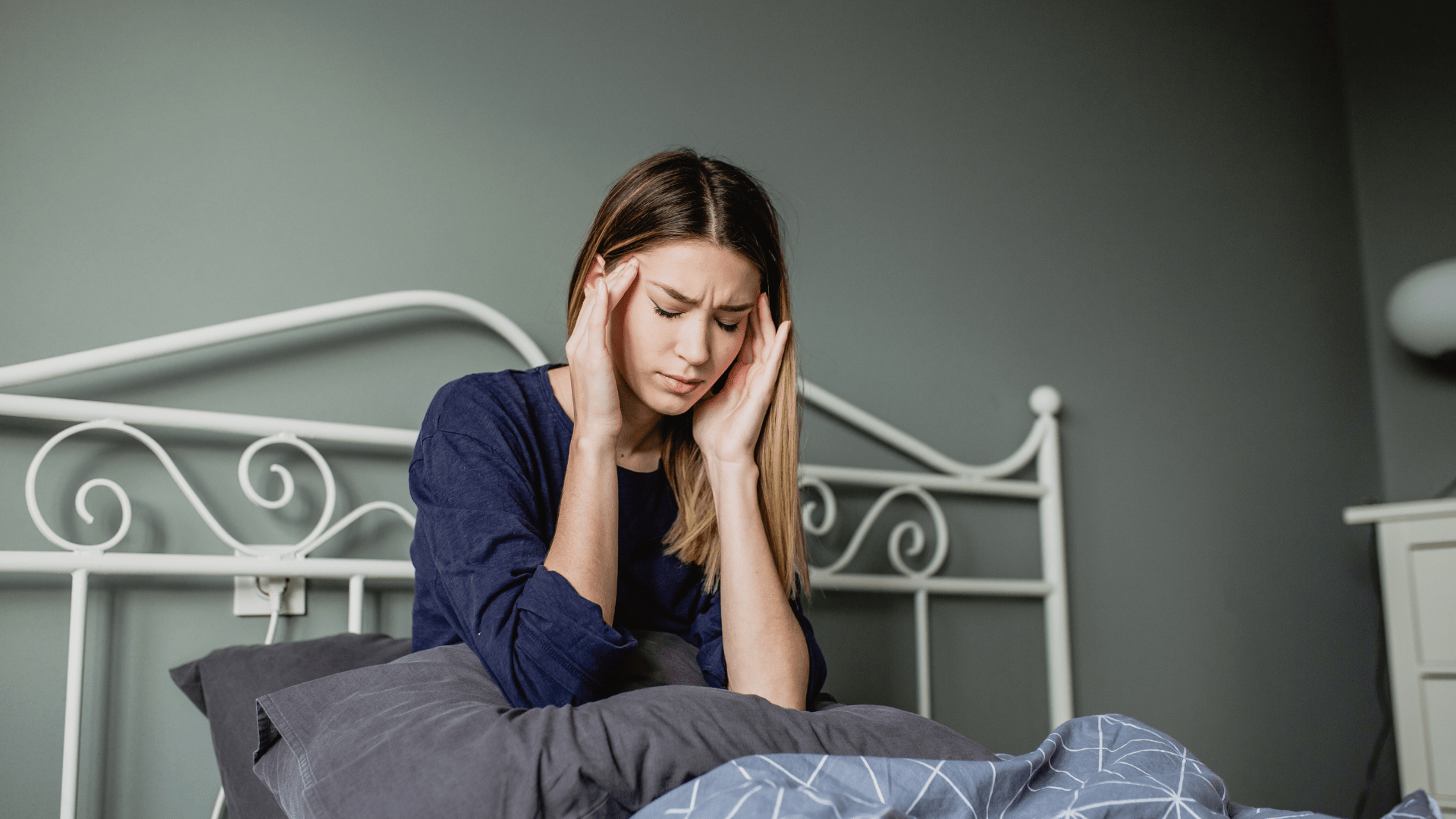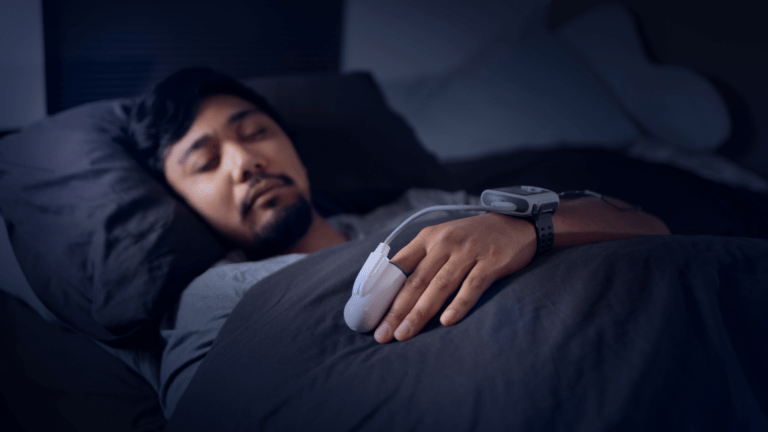Let’s bust a common myth right off the bat—waking up with headaches isn’t always because you didn’t get enough sleep. Sure, sleep quality plays a big part, but there’s more to the story. It’s not just about how long you sleep; it’s about what’s happening while you sleep. Surprising, right? Headaches in the morning can be linked to everything from how you position your body at night to underlying health issues. Let’s dive into why you might be waking up with headaches and, more importantly, how you can fix it.

Why Waking Up with Headaches Is Common
If you’re waking up with a headache, you’re not alone. It’s more common than you might think. Millions of people around the world start their day this way, but not everyone knows why it happens. And no, it’s not always just stress or lack of sleep. There are multiple reasons why morning headaches happen.
So, what’s going on? Morning headaches are often a sign that something’s off, and it’s not always obvious. They can be related to sleep disorders, health issues, or even your daily habits. You might be experiencing headaches because of things you’d never think about—like how much water you drank the night before, or the position you slept in. The good news is, that once you know the cause, there are easy ways to prevent these headaches from ruining your mornings.
It’s all about looking at the bigger picture. The fact is, waking up with a headache could be caused by everything from dehydration to bruxism (teeth grinding), and each of these has its own set of solutions.
Sleep-Related Causes of Morning Headaches
Sleep-related causes of morning headaches can stem from conditions like sleep apnea, where disrupted breathing leads to frequent awakenings and oxygen deprivation. Additionally, poor sleep posture or grinding teeth during the night can result in tension headaches when you wake up.
Poor Sleep Quality
Let’s be real: poor sleep quality is one of the biggest culprits behind waking up with headaches. But here’s the twist—it’s not just about getting fewer hours of sleep; it’s about the quality of that sleep. You might be lying in bed for eight hours, but if your sleep is interrupted or you’re not hitting deep sleep stages, your body and brain aren’t getting the rest they need. That’s when you wake up with a throbbing headache.

Sleep disorders like sleep apnea are often a hidden cause of these morning headaches. Sleep apnea, for instance, disrupts your breathing throughout the night, which lowers oxygen levels in your blood. Your brain doesn’t get the oxygen it needs, which can trigger headaches when you wake up. And if sleep apnea goes untreated, these headaches will just keep coming back.
What’s the fix?
Sleep hygiene is key to enhancing your sleep quality and preventing issues like waking up with headaches. Start by evaluating your sleep routine: ensure your room is dark and quiet, avoid caffeine close to bedtime, and maintain a consistent sleep schedule. If you suspect sleep apnea or other sleep disorders, consult your doctor. Treating these conditions can alleviate morning headaches and significantly boost your overall health. By improving your sleep hygiene, you’ll create a more restful environment conducive to better sleep and overall well-being.
Teeth Grinding (Bruxism)
Do you ever wake up with a tight jaw or sore teeth? That might be a sign of teeth grinding, also known as bruxism. Many people grind their teeth in their sleep without even knowing it, and the pressure this creates can lead to tension headaches. If you’re clenching your jaw or grinding your teeth during the night, it puts stress on your head and neck muscles, and that’s why you wake up with headaches.
What can you do?
The best way to deal with bruxism is to use a mouthguard at night. Your dentist can help you find the right one. You might also want to practice relaxation techniques before bed—stress often triggers bruxism, so calming your mind can relax your muscles too.
Sleep Position and Pillow Problems
Ever wake up with a headache and neck pain? It might be your pillow’s fault—or how you sleep. Your sleep position plays a major role in how you feel when you wake up. If your neck and head aren’t properly supported during the night, you’ll strain the muscles in your neck and shoulders, and that can lead to a morning headache.
The solution?
Try changing your pillow to one that supports your neck and keeps your spine aligned. If you sleep on your back, use a thinner pillow to prevent your head from tilting forward. For side sleepers, a firmer pillow can help fill the space between your head and shoulders. Experiment with different pillow heights and firmness levels to find what works best for you.
Closing Thoughts on Sleep-Related Headaches
Waking up with headaches might be more than just a bad night’s sleep. It could be tied to deeper issues like sleep apnea, teeth grinding, or even something as simple as your pillow. The key is figuring out what’s causing the problem and making small changes to fix it. Once you do, those morning headaches will become a thing of the past.
Common Triggers You Might Overlook (And It’s Not Just Stress)
When it comes to waking up with headaches, most people jump to the conclusion that it’s purely due to stress. But let’s set the record straight—while stress can cause headaches, it’s far from the only trigger. There are everyday factors that may be at play, ones that you might not even think about. Things like diet, hydration, and even your screen time can make a big difference. So let’s break down these often-overlooked triggers and figure out how to prevent them.
Common Everyday Triggers for Waking Up with Headaches
Common triggers for waking up with headaches include dehydration from inadequate water intake and poor sleep quality due to sleep disorders or an uncomfortable mattress. Additionally, high caffeine consumption and stress can contribute to morning headaches.
Dehydration
Ever wake up with a headache and wonder why? One of the most common morning headaches is dehydration. It’s surprising how easy it is to forget to hydrate properly throughout the day, and it catches up with you by the time you wake up. If you wake up with a headache after a nap or in the morning, dehydration might be to blame. The lack of water causes your brain’s tissues to shrink slightly, triggering pain receptors and leaving you with that dull morning head pain.
What can you do?
Stay hydrated. Drink plenty of water during the day, especially before bed. Also, avoid alcohol late at night, as it can dehydrate you further. By making sure your body stays hydrated, you can reduce the chances of waking up with headaches.
Poor Diet Choices
Have you ever noticed you wake up with a headache after indulging in junk food the night before? Poor diet choices are often overlooked as a trigger for waking up with headaches. Foods high in sugar, processed ingredients, and artificial additives can cause inflammation, which contributes to morning headaches. Going long periods without eating or skipping meals can lead to low blood sugar, leaving you with headaches when you wake up. Waking up feeling sick with a headache can sometimes be the result of what you ate the previous day.
The fix?
Stick to whole, unprocessed foods and maintain a balanced diet with regular meals. Keeping your blood sugar levels steady can help prevent waking up with headaches in front of the head or experiencing morning headaches regularly.
Too Much Screen Time Before Bed
Spending too much time on your phone, tablet, or computer late at night could be why you wake up with headaches. Excessive screen time, especially before bed, can lead to eye strain and disrupt your sleep cycle. Blue light from screens interferes with melatonin production, which not only affects your sleep quality but can also result in waking up with a migraine or headache behind the eyes.

What can help?
Cut down on screen time an hour or two before bed. Use blue light filters on your devices and try reading a book or doing relaxation exercises instead of scrolling through your phone. These small changes can help you stop waking up with headaches daily and start your day feeling refreshed.
Health Conditions That Can Lead to Morning Headaches
Certain health conditions like sleep apnea, migraines, and tension headaches can cause persistent morning headaches. If you frequently wake up with headaches, it might be worth consulting a healthcare provider to explore potential underlying issues.
Sinus Issues
Have you ever woken up with a headache and thought it might be sinus-related? Sinus issues are a common cause of morning head pain. If you suffer from allergies, nasal congestion, or sinus infections, the pressure can build up in your sinuses while you sleep, leading to that dull, throbbing headache when you wake up. Waking up with headaches, especially behind the eyes or on the right side of the head, could be a clear sign of sinus trouble.
What can you do?
Address the underlying cause of your sinus issues. Using a humidifier, taking allergy medications, or using saline nasal sprays before bed can help relieve sinus pressure and prevent waking up with sinus headaches.
High Blood Pressure
Another health-related cause of waking up with headaches, especially in the morning, could be high blood pressure. Elevated blood pressure puts extra pressure on the blood vessels in your brain, leading to headaches when you wake up. Many people don’t realize they have high blood pressure because it often doesn’t come with noticeable symptoms—morning headaches could be an early warning sign.
How to manage it?
If you keep waking up with headaches and suspect high blood pressure, it’s important to consult with your doctor. Managing blood pressure through a balanced diet, regular exercise, and medication can reduce your chances of waking up with a headache every day.
Hormonal Changes
Hormonal fluctuations, particularly in women, are a frequent trigger for morning headaches. These fluctuations can happen due to menstrual cycles, pregnancy, or menopause, causing a drop in estrogen levels that may lead to headaches when you wake up. Waking up with a headache during your period or when you feel tired with a headache could be linked to hormonal imbalances.
What can help?
Tracking your hormonal cycle and identifying patterns in your headaches can help. Adjusting your routine—by staying hydrated, managing stress, and paying attention to your body’s needs—can alleviate hormone-related headaches and prevent waking up feeling sick with a headache.
Closing Thoughts on Everyday and Health Triggers
Waking up with headaches can be a frustrating way to start your day, but the causes often go beyond stress or poor sleep environments. Everyday triggers like dehydration, poor diet choices, and screen time can easily lead to those morning headaches you might be experiencing. Health conditions like sinus issues, high blood pressure, and hormonal changes also play a significant role in causing headaches when you wake up. By addressing these underlying issues, you can reduce waking up with headaches and start each day headache-free.
Sleep Environment Is Not Always the Culprit (And Why It Might Be)
Many people assume that waking up with headaches is purely due to their sleep environment—such as an uncomfortable mattress or bedroom noise. However, it’s not always about your sleep setup. Sometimes, the reasons why you wake up with headaches go deeper than just external factors. Let’s explore how much of an impact your sleep environment has and how to make adjustments that can help prevent morning headaches.
Adjusting Your Sleep Environment to Prevent Headaches
Optimizing your sleep environment can significantly reduce the likelihood of waking up with headaches. Consider adjusting your bedroom’s temperature, investing in a supportive pillow, and minimizing noise and light to create a more restful setting.

Temperature Matters More Than You Think
When you wake up with a headache, it’s easy to blame factors like stress or oversleeping. But did you know that the temperature of your room could be a culprit? If your bedroom is too hot or too cold, it can mess with your sleep cycle, leading to morning headaches. A room that’s too warm can make it difficult for your body to cool down—crucial for deep sleep. On the other hand, if the room is too cold, you might wake up feeling stiff and sore, with a tension headache from sleeping too much in an uncomfortable position.
What’s the ideal solution?
Experts recommend keeping your room between 60-67°F (15.5-19.5°C) to ensure your body stays comfortable throughout the night. Adjusting the thermostat or opting for breathable bedding could help prevent waking up with headaches, including those that strike after a nap or in the early morning.
Your Mattress and Pillow Might Be Doing You Dirty
If you’re waking up with headaches every day, the problem might be your mattress or pillow. An old or unsupportive mattress can cause spinal misalignment, which leads to neck and shoulder tension—common causes of morning headaches. Likewise, pillows that are too flat or too high can result in neck pain, leading to headaches behind the eyes or on one side of the head.
How can you fix it?
Ensure that your mattress offers the right level of support for your sleeping position and that your pillow keeps your neck aligned with your spine. If you’re waking up tired with a headache or stiffness, it’s likely time for a mattress or pillow upgrade. Consider memory foam pillows or neck-supportive options to ease morning head pain and prevent waking up with migraines.
Noise and Light Can Sneak Up on You
Have you ever wondered why you keep waking up with headaches, even though your sleep environment seems quiet? Sudden noises, like a loud car horn, or light exposure, such as early morning sunlight, can pull you out of deep sleep stages, disrupting your REM cycle. This can cause you to wake up feeling sick with a headache, nausea, or just groggy. Even minimal light exposure can trick your body into thinking it’s time to wake up, which may leave you with a headache in front of your head.
How to handle it?
Create a dark and quiet sleep environment by using blackout curtains to block out any light and a white noise machine or earplugs to drown out disruptive sounds. These small adjustments can help you stay in the deep stages of sleep, reducing the chances of waking up with a headache every day or after naps.
Lifestyle Changes to Reduce Morning Headaches
Making simple lifestyle adjustments can significantly reduce morning headaches. Prioritize hydration, maintain a consistent sleep schedule, and manage stress to improve overall well-being and decrease the likelihood of waking up with headaches.
Stick to a Consistent Sleep Schedule
If you find yourself waking up with headaches every morning, it could be due to an inconsistent sleep schedule. Waking up with headaches often stems from disruptions to your body’s internal clock (also known as the circadian rhythm). When your sleep and wake times vary drastically, your body struggles to adjust, leading to morning head pain and even oversleeping headaches.
What’s the takeaway?
Stick to a consistent sleep schedule by going to bed and waking up at the same time every day—even on weekends. This regularity can help your body regulate its internal clock, reducing the chances of waking up with headaches, including those that occur after naps or result in waking up feeling sick with a headache.
Practice Relaxation Techniques Before Bed
Waking up with a headache behind your eyes or on one side of your head could be caused by tension headaches from high stress levels before bed. Practicing relaxation techniques is an effective way to wind down and prepare for restful sleep. Relaxing activities like meditation, deep breathing exercises, or gentle stretching can lower stress and reduce the chances of waking up with migraines or headaches.

How to implement it?
Dedicate 15-30 minutes before bed for relaxation. Activities such as light yoga, mindful meditation, or calming music can help you unwind and prevent waking up tired with a headache. Making relaxation a part of your nightly routine may also help reduce the likelihood of waking up with a headache every day.
Limiting Alcohol and Caffeine Before Bed
Waking up with a headache after drinking alcohol or consuming caffeine too close to bedtime is common, as both substances can disrupt your sleep cycle. Alcohol, while seemingly relaxing, can interfere with REM sleep and lead to morning headaches. Similarly, having caffeine too late in the day can result in restless nights and headaches when you wake up.
The best approach?
Cut back on alcohol and caffeine consumption in the evening. If you’re looking for a soothing beverage before bed, opt for caffeine-free herbal teas instead. These can promote relaxation without disrupting your sleep cycle, helping you avoid morning headaches.
Wrapping Up Your Sleep Environment and Lifestyle Adjustments
Preventing morning headaches—whether they manifest as a headache in the front of your head or a migraine—requires more than just medication. Thoughtful adjustments to your sleep environment, like regulating bedroom temperature, upgrading your mattress and pillow, and minimizing noise and light, can make a big difference. Coupling these adjustments with lifestyle changes such as maintaining a consistent sleep schedule and practicing relaxation techniques will help you avoid waking up with headaches daily.
Medications Aren’t Always the Answer (What to Know About Overusing Them)
Though taking medication may offer temporary relief, relying on it too frequently can lead to what’s known as “medication overuse headaches” or rebound headaches. This makes waking up with headaches even more persistent. It’s essential to evaluate how often you’re using headache medications and consider whether lifestyle and environmental adjustments can reduce your dependency.
The Impact of Medications on Morning Headaches
Certain medications, particularly those affecting neurotransmitter levels or blood flow, can lead to morning headaches as a side effect. It’s crucial to consult with a healthcare provider to adjust dosages or explore alternative treatments if morning headaches persist.
Overuse of Painkillers
Painkillers like ibuprofen, acetaminophen, and aspirin can offer much-needed relief for headaches, but overusing them can lead to more harm than good. Neurologists explain that frequent overuse of these medications can result in rebound headaches, which occur when the pain relief wears off and your body starts craving the medication again. If you wake up with headaches every morning, particularly after relying on painkillers, this cycle might be to blame.
What’s the solution?
Moderation is key. If you wake up with a headache daily and find yourself reaching for painkillers multiple times a week, it’s time to reassess. Tracking your medication usage and consulting a healthcare provider for alternative pain management techniques could help reduce the frequency of waking up with migraines or headaches.
Sleep Medications and Their Side Effects
Sleep medications, while helpful for managing insomnia, can cause unintended side effects, including morning headaches. If you wake up with a headache in the front of your head or behind your eyes, it could be due to the disruption of your natural sleep cycle by sleep aids. Long-term use of sleep medications can lower sleep quality, leading to oversleeping headaches or waking up tired with a headache.
How to handle it?
Use sleep medications as a short-term solution, not a long-term fix. If you’re consistently waking up with headaches after naps or overnight, explore non-medication alternatives like cognitive behavioral therapy for insomnia or natural sleep aids. This could help you wake up feeling refreshed without the headache-related side effects.
Prescription Medications and Side Effects
If you’ve been waking up with headaches every morning and taking prescription medications like blood pressure pills or antidepressants, they might be the cause. These medications can sometimes interfere with your sleep or lead to dehydration, causing you to wake up with a headache, especially on one side of your head. This often goes unnoticed, particularly if you’ve been on the medication for a long time.
What’s the best move?
Consult your doctor if you suspect your prescription medication is behind your morning headaches. They might adjust your dosage or switch you to a different medication with fewer side effects. Never change your medication regimen without speaking to a healthcare professional.
Seeking Medical Advice for Chronic Morning Headaches
If you’re struggling with chronic morning headaches, it’s crucial to consult with a healthcare professional to identify underlying causes and receive appropriate treatment. Persistent headaches can be a sign of various health issues, so getting a proper diagnosis is essential for effective management.
When to See a Doctor
Let’s clear this up: not every morning headache is a sign of something serious, but if you wake up with headaches every day or they are severe, it’s crucial to seek medical advice. Chronic morning headaches may indicate underlying health problems such as sleep apnea, hypertension, or neurological conditions. Ignoring persistent headaches won’t make them go away; in fact, delaying a doctor’s visit could result in missing early treatment opportunities.
What should you look out for?
If your morning headaches are accompanied by symptoms like blurred vision, confusion, or nausea, or if you consistently wake up with headache pain behind your eyes, it’s time to consult a doctor. Frequent morning head pain that doesn’t improve with lifestyle adjustments or over-the-counter medications should also prompt a medical evaluation. Seeking early diagnosis and treatment can help manage or even prevent waking up with headaches daily.
Diagnostic Tests
When you visit a doctor for chronic morning headaches, they might recommend diagnostic tests to uncover the root cause. This could include monitoring your blood pressure, undergoing a sleep study to evaluate for sleep apnea, or undergoing neurological exams to rule out migraines or other disorders. These tests are designed to identify what’s causing you to wake up with a headache, so you can get appropriate treatment.
What’s involved?
A sleep study can reveal sleep apnea, a common cause of waking up with a headache and nausea or waking up with migraine symptoms. Blood tests can detect deficiencies or hormonal imbalances, while imaging tests like MRIs or CT scans help rule out more serious conditions. These tests provide vital insights to help your doctor create a targeted treatment plan.
Treatment Options
Once your doctor identifies the cause of your morning headaches, treatment options will be tailored to address the underlying issue. For instance, if sleep apnea is the culprit behind your oversleeping headache or morning headache in front of your head, a CPAP machine may be recommended. If you’re diagnosed with migraines, your doctor may prescribe migraine-specific medications or suggest lifestyle changes to reduce triggers.
The takeaway here?
Treatment is most effective when it targets the specific cause of your morning head pain. Seeking medical advice for chronic morning headaches is essential to managing or even eliminating them in the long run. With the right diagnosis and treatment plan, you can wake up feeling refreshed rather than dealing with a headache every day.
Wrapping Up Your Medication and Medical Guidance for Morning Headaches
While medication can help provide relief from morning headaches, overuse can sometimes lead to more harm than good. It’s important to strike a balance and avoid dependency on painkillers or sleep aids, which might contribute to why you wake up with headaches every morning. If lifestyle changes aren’t enough, don’t hesitate to seek medical advice. Diagnostic tests can reveal hidden causes of morning head pain, and with the right treatment, you can find long-term relief from chronic morning headaches.



